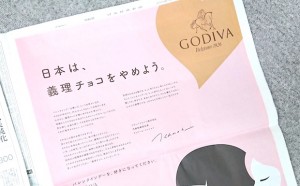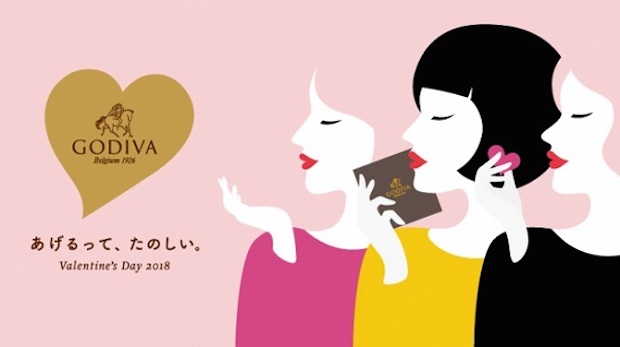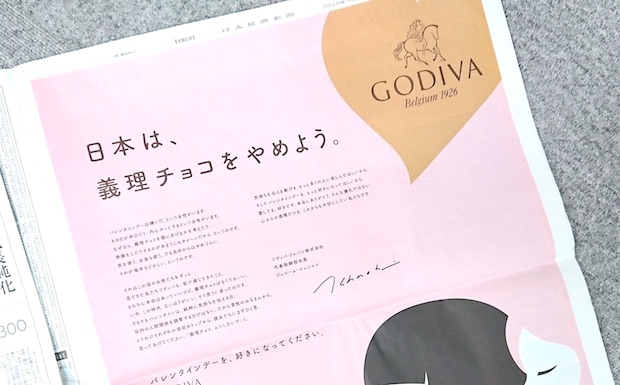
The first thing to learn about Valentine’s Day in Japan is that it’s only for women to give to men. The guys are supposed to reciprocate on White Day, or March 14th. Moreover, it’s not just for couples. In fact, women are meant to provide chocolates for all their male colleagues and relatives. So women purchase chocolates for their fathers as well as coworkers. Communal desks at offices around Japan are piled high with chocolate offerings come February 14th.
In Japan, the custom of buying chocolate like this is known as “giri choco” (obligation chocolate).
But the custom has arguably led to a widespread devalorization of chocolate, to such an extent that formerly luxury brands like Godiva are now much more widely available than before.

It also means that people tend to expect cheaper chocolate, which is no longer a special treat but something enjoyed quite regularly (even daily in many cases). Visit a department store food area around Valentine’s Day and you will find huge crowds at the counters, lining up to buy chocolate items out of a sense of duty rather than genuine passion for the sweet snack (or who they will give it to). Events like Salon de Chocolate are immensely popular, with organizers hiring out major halls to cope with the demand.
Now Godiva has taken the unprecedented step of asking people to stop buying chocolate. The brand put out a full-page advertisement in the Nihon Keizai Shimbun newspaper on February 1st with a message from Godiva Japan president Jerome Chouchan, specifically requesting people not to purchase giri choco. “People of Japan, let’s stop giri choco,” the title reads.

Naturally, brands like Godiva make a lot of their turnover around Valentine’s Day and White Day, and have seen their market presence surge thanks to the grip that giri choco has on the population. But they know that it does damage to chocolate culture in the long run, hence the gradual rise in recent years of bean-to-bar and organic chocolate products — much like third-wave coffee and craft beer are enjoying a boom in Japan partly in reaction to, respectively, the ubiquity of mainstream coffee chains like Starbucks and convenience store coffee, and the push by Japanese breweries towards gimmicky beer and cheap ersatz beverages.
As such, Godiva knows that it risks destroying its own brand and culture if it rides the giri choco wave too far.
Giri choco encourages prices to come down, since consumers don’t want to fork out a lot of cash for chocolates just for coworkers whom they do not really care about. The knock-on effect of the custom has led to a boost in sales for the like of Godiva, but the overall competitiveness means that everyone reduce prices and, possibly, also lowers quality.
A cynic, on the other hand, might suggest that Godiva is merely trying to sabotage its rivals and secure its position in the market. While Godiva no longer has a reputation as an inaccessibly expensive luxury brand, its prices nonetheless mean it is not the usual choice for giri choco. If those cheaper chocolate products drop off, only the established and more upmarket names stand to benefit.
